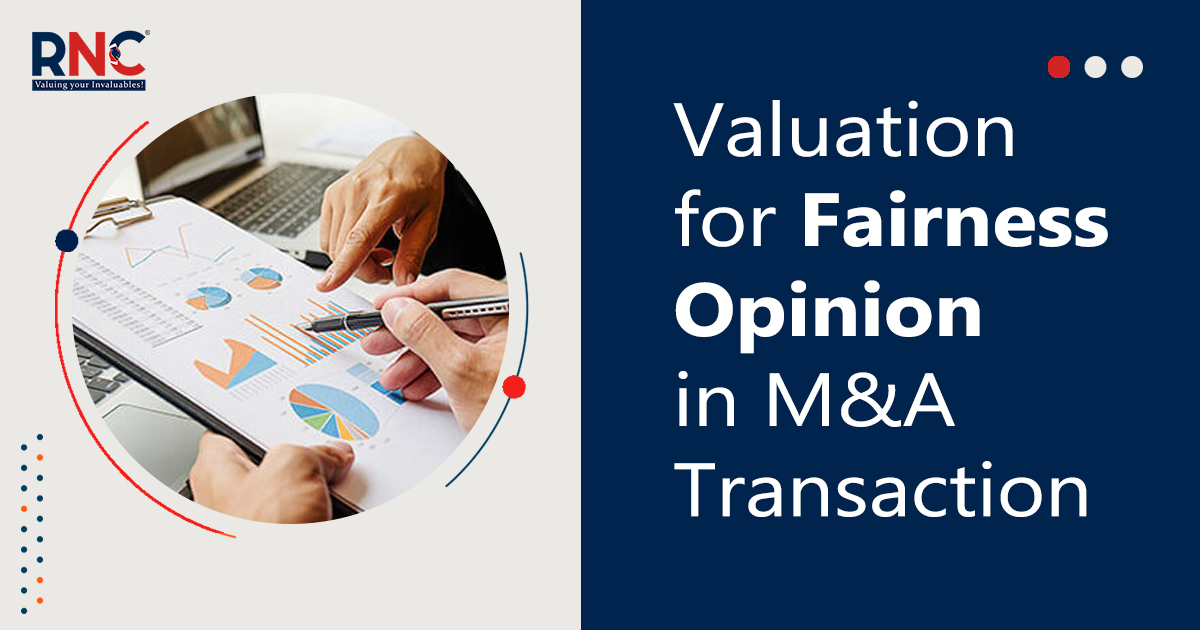
Financial and Market Analysis was conducted, including DCF modeling, to determine the company’s intrinsic value. Due diligence and discussions with stakeholders provided insights into the deal’s rationale and synergies.
Also Read: Independent Advisory and Valuation Services for Mergers & Acquisitions
Implementation:
A comprehensive fairness opinion report was prepared, presenting findings and supporting analysis to the board. The report guides informed decision-making regarding the Merger’s terms and fairness to shareholders.
In M&A transactions, a fairness opinion ensures that the deal price is fair from a financial point of view to minority shareholders. In India, with SEBI and Companies Act regulations becoming stricter, defensible valuations are critical. This guide explains what fairness opinions are, why they matter, methods used, and real-world cases.
Approach:
Financial and Market Analysis was conducted, including DCF modeling, to determine the company’s intrinsic value. Due diligence and discussions with stakeholders provided insights into the deal’s rationale and synergies.
Also Read: Independent Advisory and Valuation Services for Mergers & Acquisitions
Outcome:
The fairness opinion affirms the Merger’s financial fairness, instilling confidence in the transaction’s terms. The Corporation proceeds with the merger, bolstered by transparency and trust among stakeholders.
Read more Case Studies:
The Necessity of a Rental Agreement – A Case Study
Financial Valuation : Securities, Instruments, & Derivatives
Urban Property – Case of an effective Rental Agreement
Need a fairness opinion for your upcoming transaction? Talk to RNC experts today.
FAQs
1. What is a fairness opinion in M&A?
A fairness opinion is an independent financial assessment that confirms if the proposed transaction price is fair to shareholders.
2. When is a fairness opinion required in India?
Fairness opinions are often required in related-party transactions, mergers, acquisitions, and takeover offers under SEBI and Companies Act rules.
3. Who can issue a fairness opinion in India?
Independent registered valuers, merchant bankers, or valuation firms approved under SEBI and IBBI regulations.
4. What methods are used in fairness opinion valuations?
Common methods include DCF, market multiples, and comparable transaction analysis.
5. Why is fairness opinion important for boards?
It protects directors from litigation, builds investor trust, and ensures regulatory compliance.

About the author:
Sahil Narula
Sahil Narula is the Managing Partner at RNC Valuecon LLP and a Registered Valuer with IBBI. He brings over a decade of experience in Valuation Services, Corporate Finance, and Advisory, having led numerous complex assignments under the Insolvency & Bankruptcy Code, 2016, Mergers & Acquisitions, Insurance, and Financial Reporting.
He is a regular speaker at national forums (ASSOCHAM, CII, ICAI, IBBI, Legal Era) and currently serves as Co-Chairman of ASSOCHAM’s National Council on Insolvency & Valuations and a member of CII’s Task Force on Insolvency & Bankruptcy.
🤝Connect with Sahil on LinkedIn.
